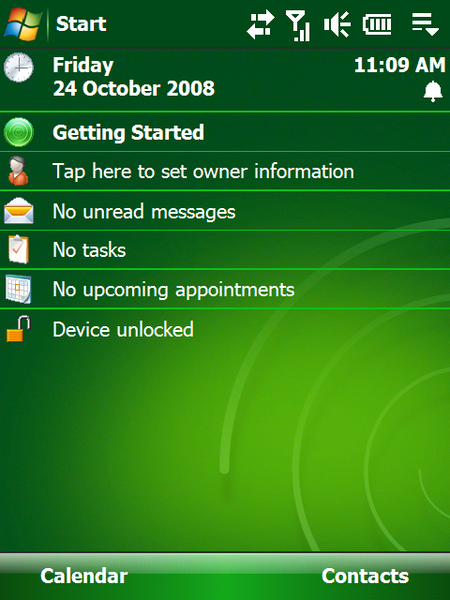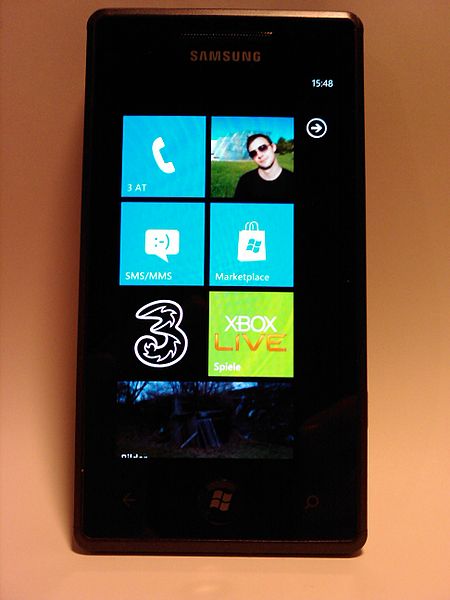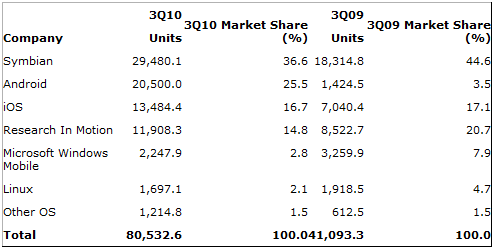Microsoft. Believe it or not, it used to be my dream company. The story of Bill Gates founding Microsoft after dropping out of Harvard is a story I read multiple times on a book. I was so into it once that I installed Windows Vista RC1 on my crappy Vaio laptop. (Slover, I know you’re chuckling.) In the end, it was a difficult path back to XP, and Vista kinda… bombed itself.
![]()
Anyhow, Microsoft isn’t what it used to be. Well, it has been a while since it has not been what it used to be. This I thought when I looked through the history perspective of Mobile Division within the company. (If such thing exists) First, let’s remind ourselves of what Microsoft was doing while all the smartphone revolution was going on. When Windows Mobile 6 was being unveiled in early 2007, a little company in the south led by some guy with black turtleneck and jeans named Apple unveiled its first mobile phone, the iPhone. A browser with the capability of browsing the full internet, and a beautiful user experience totally incapacitated people, even after considering that it had no support for third-party applications, no copy and paste, nor it could browse the web in 3G. Especially, after App Store came in the very next year, iPhone became the global phenomenon. Then, guess what Microsoft did meanwhile all of this. It has upgraded Windows Mobile from 6 to 6.1. That was it.

After that, this kind of situation just went on. When Apple unveiled iOS 3 and iPhone 3GS, Microsoft abruptly announced Windows Mobile 6.5. I’m not joking when I’m saying it was abrupt. See, Microsoft had to make up for the gap between Windows Mobile and the next OS which was about to be Windows Phone 7, because it was delayed. That was where 6.5 came in. For an update that was never intended, 6.5 had a new user interface that was little bit more user friendly to touch screen. But still, the inside was the old version 6.

The press were not kind. ZDNet said, “for all practical purposes, Windows Mobile is a dead platform”, while CNET went a bit further by saying, “Windows Mobile has now been relegated resolutely to has-been status.” New York Times reported that OEMs were abandoning Windows Mobile in favor of Android.

The next year, Microsoft finally announced Windows Phone 7, which was built from scratch. Even I think about it now, it had pretty revolutionary elements, such as live tiles, and UI designs. It felt like they stole some people from Xbox division, which is the most innovative part of Microsoft, in order to build the OS. (Probably that’s why it was delayed)
The problem, however was the fact that Microsoft came in too late into the game. The market share of Windows Mobile has already fallen to a single-digit number, and iOS, of which the Windows Mobile was ahead of, screamed it past, almost doubling the market share. Even worse, after the announcement in February 2010, it took 9 months to be released to average Joes. Now, it is time to answer the question above. iPhone was announced in January 2007, so it took Microsoft… 3 years to announce something that we can call ‘modern smartphone OS.’ Further, it took 3 years and 5 months, if we count both OS’ release date. (iPhone: June 2007, Windows Phone 7: November 2010) Anyway, during those 9 months, Android managed to grow its market share by 8 times, while Windows Mobile had to divide that single-digit number into 4. Still, we have to wait for the Q4 2010 results of smartphone market share to show up, but according to various articles, it does not look bright.

Worse news: Microsoft is about to repeat this. Again. Yes, it’s about the tablet thingy, and according to some media outlets, there won’t be a Windows tablet of some kind until Fall 2012. FALL. 2012. Next year. Still one and a half year to go. Hell, I’d already be halfway through my military service by then. Are you kidding me, Microsoft? I will not even go on saying that Microsoft is looking into adopting the desktop version of Windows, instead of its mobile counterpart, namely Windows Phone 7. (Wait a minute, I just did it, didn’t I? Dang it!) That is something of a preference issue, since some people I have talked to actually preferred putting full Windows on a tablet. (Which, no offense to them, I don’t totally get.) But then, there is an issue of Microsoft’s optimization, which I don’t think it will go so well.

Not all Microsoft division are this blue. My favorite division, as I mentioned above, is Xbox. (I think it’s under Home Entertainment or something like that) It estranges itself from other parts of Microsoft by being innovative. For example, Kinect sensor itself was very revolutionary, though software was a total crap. However, all the rest is… meh. The worst parts out of all though, are Mobile and Windows. Then, I guess it is time for growling at Windows division. I really wonder they even have a slightest of intention of rewriting Windows from scratch. If we just look at the Windows development thus far, all of them are based on the previous version. (Even Vista is based on Windows Server 2003) I actually feel sympathy, since Windows has a vast array of legacy applications, and the only way to preserve the compatibility is by not rewriting everything. Though I must say, I was quite scared by watching 20-year-old programs working just fine on Windows 7. However, the flipside is that it takes longer and longer to develop it (cue Vista), and the performance and efficiency keeps dropping. Meanwhile, Apple has completely rewritten Mac OS on regular basis, with OS X being the latest rewrite attempt.
In conclusion, the problems of Microsoft largely can be divided into two parts: 1) It cannot catch up with trends. It takes years to react to the trend. 2) It cannot throw away its ancient artifacts. In order to solve this, something inside the company has to change. Since it is most likely the size of the company that is causing the former, something has to be done to improve its efficiency. For the latter part, Microsoft has to boldly go where Apple has already gone before. (Like it did with Windows Phone 7) Then what else? Should Bill Gates come back? … Damn, I miss that guy.